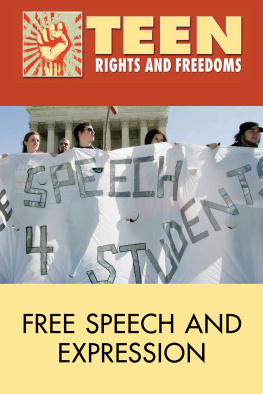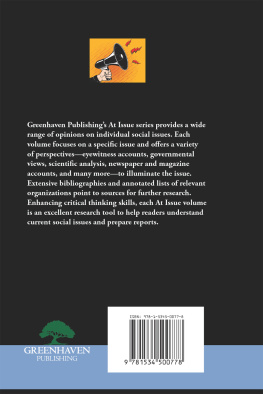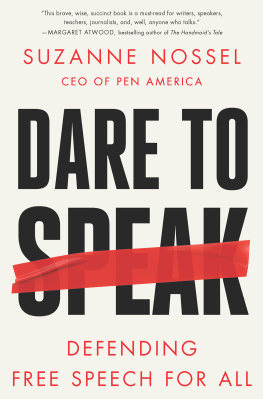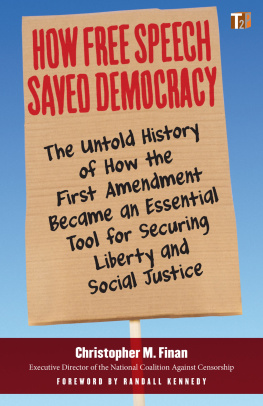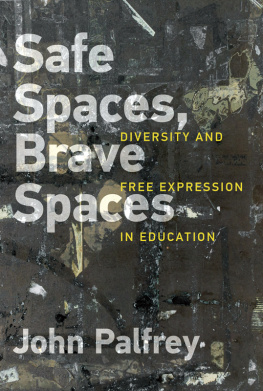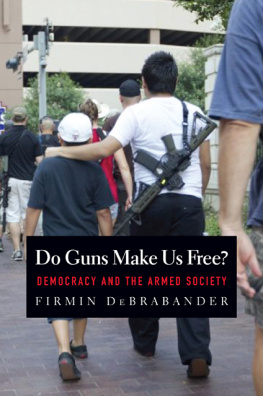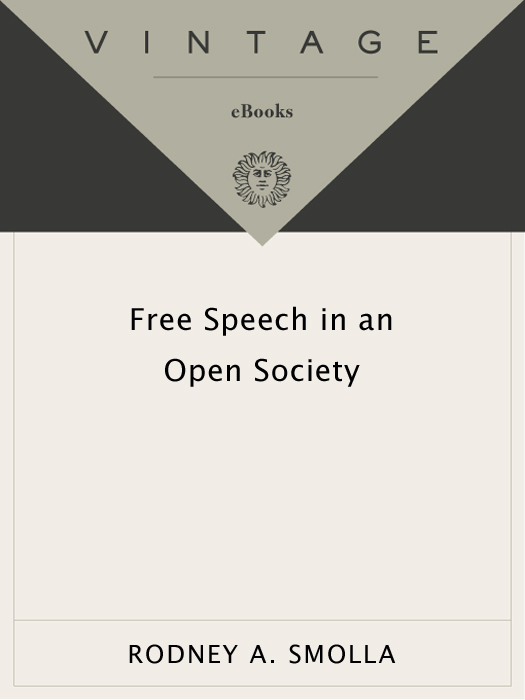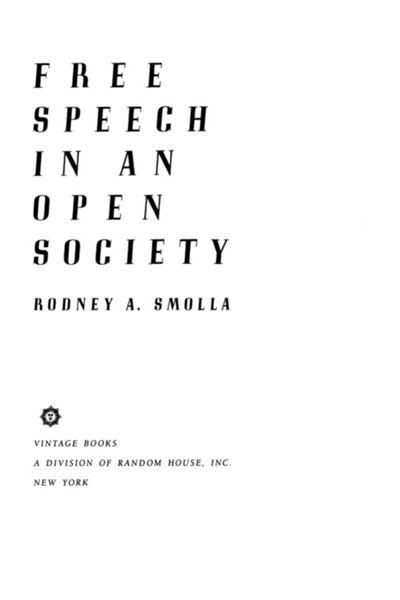RODNEY A. SMOLLA
FREE SPEECH IN AN OPEN SOCIETY
Rodney A. Smolla grew up in Chicago, and received his B.A. from Yale University in 1975 and his J.D. from Duke Law School in 1978. After law school he clerked for Judge Charles Clark of the United States Court of Appeals for the Fifth Circuit and practiced law in Chicago. He is currently Arthur B. Hanson Professor of Law and Director of the Institute of Bill of Rights Law at the College of William and Mary, Marshall-Wythe Law School. He is a Senior Fellow at The Annenberg Washington Program in Communications Policy Studies of Northwestern University. He is the author of Suing the Press: Libel, the Media, and Power (1986), Law of Defamation (1986), and Jerry Falwellv.Larry Flynt: The First Amendment on Trial (1988), and the coauthor of Constitutional Law: Structure and Rights in Our Federal System (1991).
ALSO BY RODNEY A. SMOLLA
JERRY FALWELL V. LARRY FLYNT:
The First Amendment on Trial
(1988)
SUING THE PRESS:
Libel, the Media, and Power
(1986)
LAW OF DEFAMATION
(1986)
Copyright 1992 by Rodney A. Smolla
All rights reserved under International and Pan-American Copyright Conventions. Published in the United States by Vintage Books, a division of Random House, Inc., New York, and simultaneously in Canada by Random House of Canada Limited, Toronto. Originally published in hardcover by Alfred A. Knopf, Inc., New York, in 1992.
Grateful acknowledgment is made to the following for permission to reprint previously published material:
Farrar, Straus and Giroux, Inc. and Jonathan Cape Ltd.: Excerpt from The Bonfire of the the Vanities by Tom Wolfe. Copyright 1987 by Tom Wolfe. Rights outside the U.S. and Canada administered by Jonathan Cape Ltd. Reprinted by permission of Farrar, Straus and Giroux, Inc. and Jonathan Cape Ltd., a division of the Random Century Group, London.
Harvard University Press: Tell All the Truth but Tell It Slant from The Poems of Emily Dickinson, edited by Thomas H. Johnson. Published by The Belknap Press of Harvard University Press, Cambridge, Mass. Copyright 1951, 1955, 1979, 1983 by the President and Fellows of Harvard College. Reprinted by permission of the publishers and the Trustees of Amherst College.
Library of Congress Cataloging-in-Publication Data
Smolla, Rodney A.
Free speech in an open society / Rodney A. Smolla.
p. cm.
Originally published: New York: A.A. Knopf, 1992.
eISBN: 978-0-307-77303-6
1. Freedom of speech. 2. Freedom of speechUnited States.
I. Title.
[JC591.S56 1993]
323.443dc20 92-50618
v3.1
For Linda and Erin
AUTHORS NOTE
I owe thanks to many people for their support and encouragement on this project. Newton Minow, the Director of the Annenberg Washington Program in Communications Policy Studies of Northwestern University, and Timothy Sullivan, the Dean of the College of William and Mary, Marshall-Wythe School of Law, deserve special mention.
Newton Minow inspired the project. Newton is one of the most thoughtful, gracious, and generous colleagues I have ever known, and he has had an enormous impact on my professional life, gently but persistently exhorting me to push forward with my research and activities on free speech issues. He and Yvonne Zecca, the Executive Director of the Annenberg Washington Program, have constantly provided me with insights and ideas on communications matters, and with many opportunities to participate in programs that enhance my understanding of free speech problems.
Timothy Sullivan is the law school dean that all legal scholars should be fortunate enough to have. He is a colleague of great integrity and sensitivity, dedicated to the principle that the mission of a law school is to teach law in the grand manner. He has been wonderfully supportive of my professional endeavors at William and Marys Institute of Bill of Rights Law, my teaching, and my scholarly research.
Finally, I wish to thank the many people around me who have helped me complete this project, including my wife, Linda Malone, my daughter, Erin, and other members of my family; Kay Kindred and Millie Arthur of the Institute of Bill of Rights Law; my law teaching colleagues Vince Blasi and David Rabban; and the many students who have helped throughout, particularly Joan Quigley, Dannon Williams, Jerianne Mancini, Tom Jones, David Ireland, Lauren Schaefer, and Diane Davis.
To all of these people, I express my affection, respect, and thanks.
ACKNOWLEDGMENT
The author wishes to acknowledge with gratitude
the research support for this book provided by
The Annenberg Washington Program
in Communications Policy Studies
of Northwestern University.
CONTENTS
PART I
THE MEANING OF FREEDOM OF SPEECH IN AN OPEN CULTURE
CHAPTER 1
The Case for an Open Culture
And though all the winds of doctrine were let loose to play upon the earth, so Truth be in the field, we do injuriously by licensing and prohibiting to misdoubt her strength. Let her and falsehood grapple; who ever knew Truth put to the worse, in a free and open encounter?
J OHN M ILTON
Areopagitica (1644)
Tell all the truth but tell it slant,
Success in circuit lies,
Too bright for our infirm delight
The truths superb surprise;
As lightning to the children eased
With explanation kind,
The truth must dazzle gradually
Or every man be blind.
E MILY D ICKINSON
(1868)
F reedom of speech is a human yearninginsistent, persistent, and universal. Speech may be uplifting, enlightening, and profound; but it is often degrading, redundant, and trivial. Speech may be abstract and theoretical, a near cousin to thought; but it is often concrete and immediate, filled with calls to action, intertwined with conduct. Speech may be rational, contemplative, orderly, organized, and soft; but it is often emotional, raucous, chaotic, untidy, and loud. Speech may be soothing and comfortable; but it is often vexatious and noisome. Speech may confirm and affirm; it may be patriotic and supportive of prevailing values and order; but it may also be challenging, threatening, and seditious, perhaps even treasonous.
This is a propitious time to ponder the future of freedom of speech in an open culture. We are challenged by events around the world to consider what is meant by freedom of speech in the emerging international community. We are challenged by breathtaking developments in communications technology, developments as technically revolutionary as the printing press, developments that promise to alter dramatically the ways in which we gather, store, organize, and communicate information. And we are challenged by the great questions of philosophy, as we ponder when it is appropriate for the state to control public discourse for the perceived greater good.
A nation committed to an open culture will defend human expression and conscience in all its wonderful variety, protecting freedom of speech, freedom of the press, freedom of religion, freedom of association, freedom of assembly, and freedom of peaceful mass protest. These freedoms will be extended not only to political discourse, but to the infinite range of artistic, scientific, religious, and philosophical inquiries that capture and cajole the human imagination.


